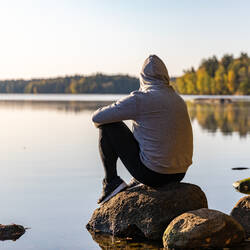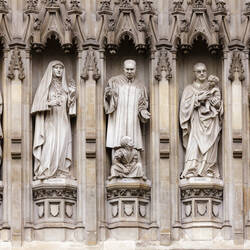Loading...
Click here if you don’t see subscription options
Click here if you don’t see subscription options
Arts & CultureTelevision
‘The Boys’ gleefully satirizes every aspect of superhero movies by showing how corrupt all-powerful beings would be if they existed in the real world.
Arts & CultureFilm
When the high school student Zach Sobiech was diagnosed with cancer, he and his family never could have imagined how many people would hear his story.
Arts & CultureFilm
That “Chicago 7” is turning up on Netflix at this precise moment is no accident, the moment being serious.
Politics & SocietyNews
Rev. Stephen M. Kelly, a 71-year-old Jesuit priest, was sentenced by a U.S. District Court judge to 33 months in jail, three years’ probation and restitution fees for his role in a symbolic nuclear disarmament action.
Politics & SocietyNews
The most important religious group to the 2020 presidential election is not really a religious group at all.
FaithJesuitical
A conversation with Father Pat Conroy, Jesuit priest and chaplain to all 435 members of the House, from the hosts of Jesuitical.
FaithThe Word
This is an important parable about personal accountability and responsibility.
Arts & CultureBooks
Stephen Graham Jones's new novel creates an extraordinary portrait of sacrifice and costly reconciliation.
Arts & CultureBooks
The stories in Valerie Sayers's new collection are populated with characters who strive to hang on to something good.
FaithFaith and Reason
Different modes of authority and models of governance have existed in the Catholic Church's history, often in response to the need for church reform.
FaithFeatures
Mass attendance and Catholic affiliation have been eroding steadily since the 1970s for all income brackets, but the sharpest decline has been among the two bottom economic quartiles.
FaithThe Word
Christ the King is present now among the poor, the immigrants, the sick and the imprisoned.
FaithFaith in Focus
I loved my school while I was there. I trusted its people to keep me safe, and they did. But was I just lucky?
FaithThe Word
We must be mindful of what is happening to us and around us, responsible for ourselves, our actions and our community.
FaithThe Word
Resources (money, talents, faith) should be strengthened and increased, as the woman of power’s example makes clear.
Arts & CulturePoetry
do not assay us too harshly
that were ever more tin than gold
Politics & SocietyYour Take
Bishop Seitz continues to generate feedback from our audience on single-issue political strategies.
FaithThe Word
The Beatitudes can be read with an eye to the present, not only the future.
FaithFaith and Reason
History shows that authority in the church has taken many forms.

















